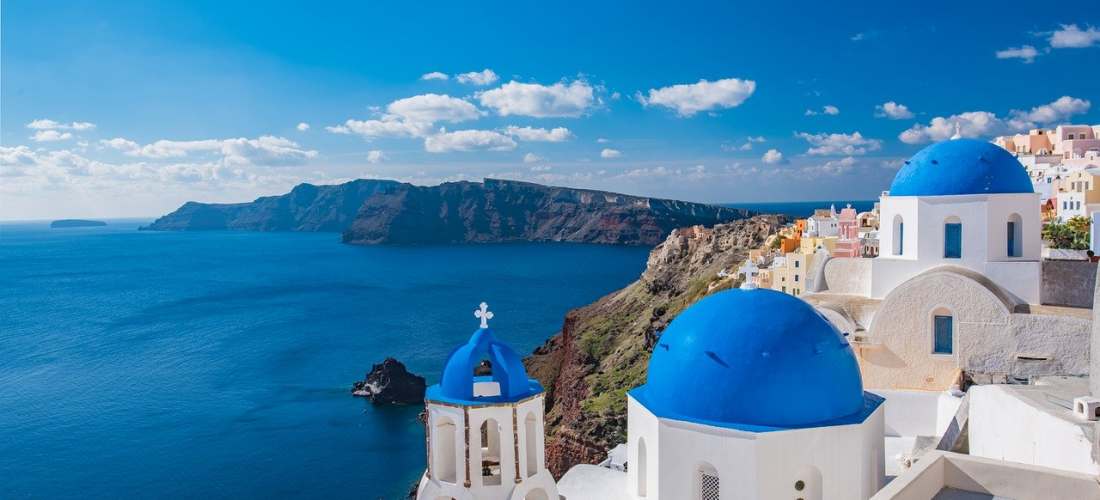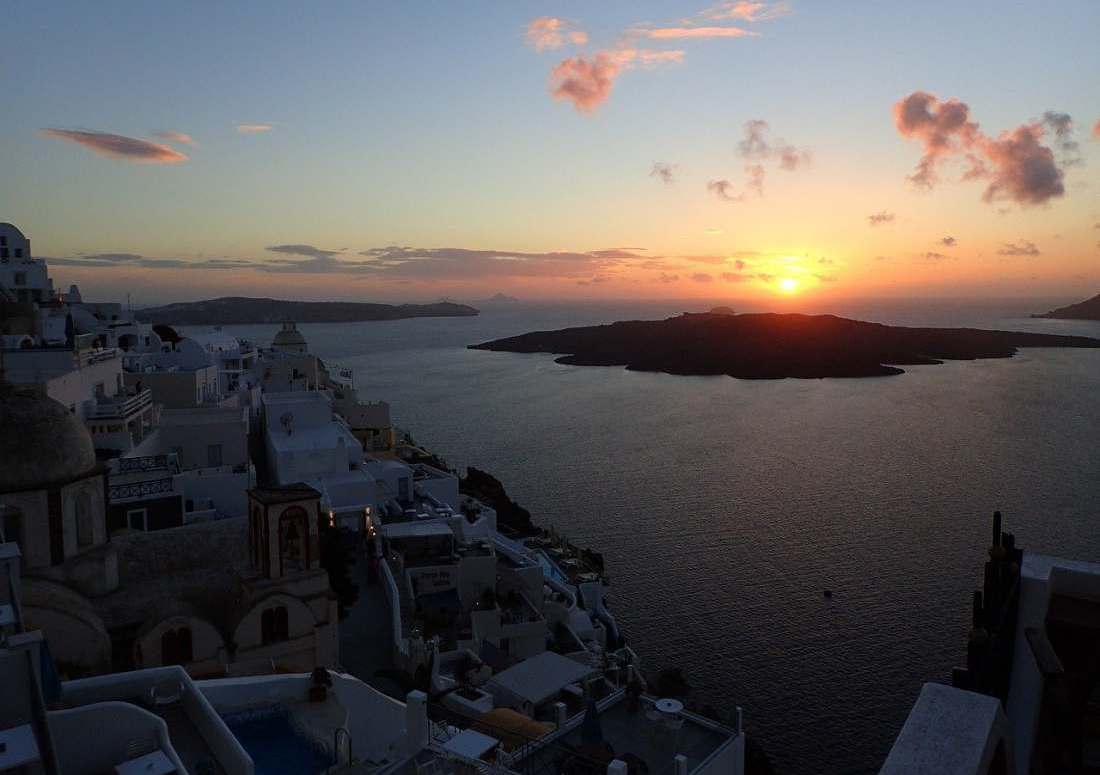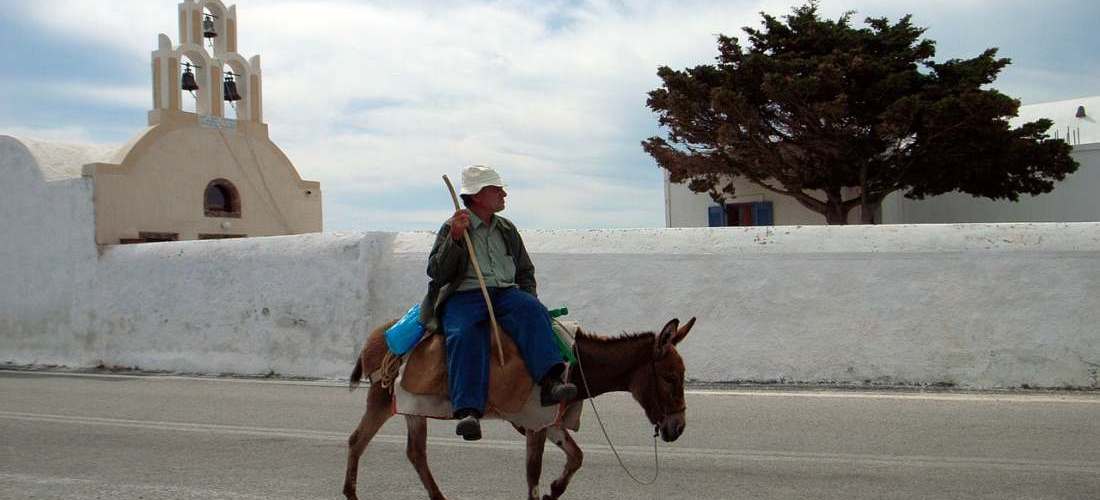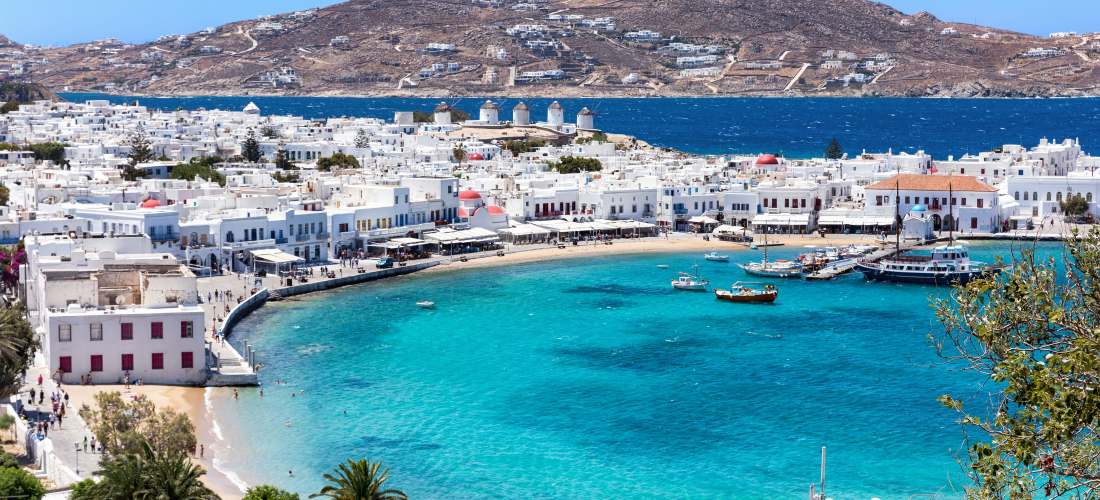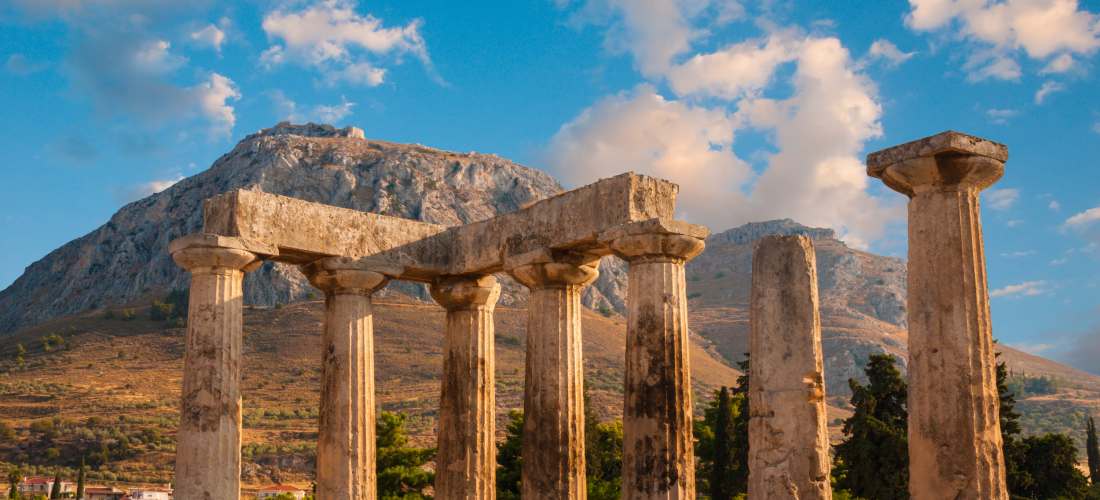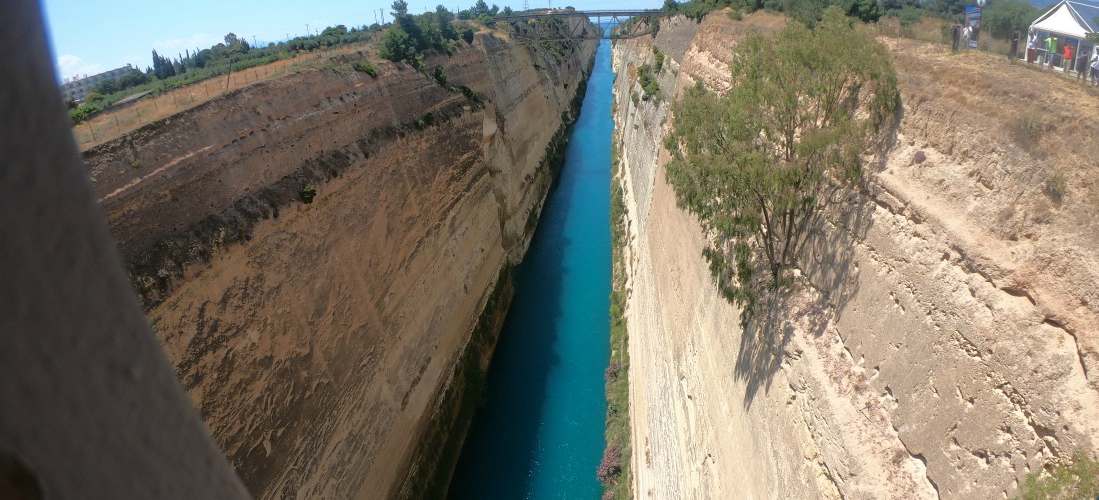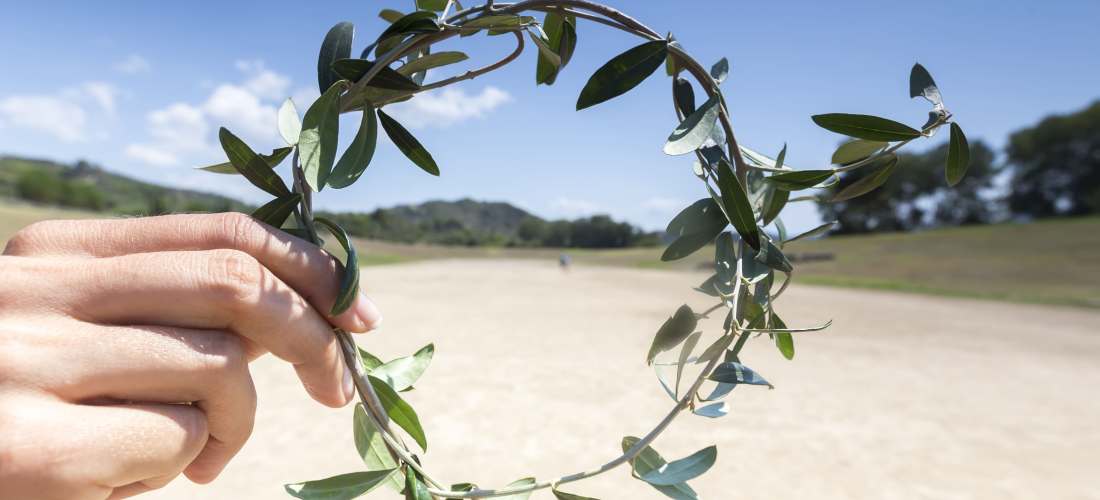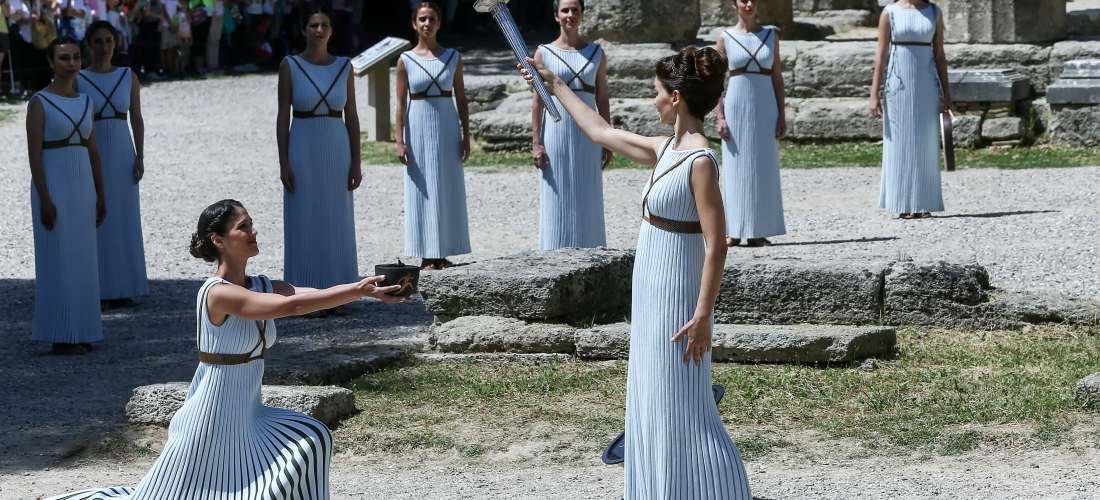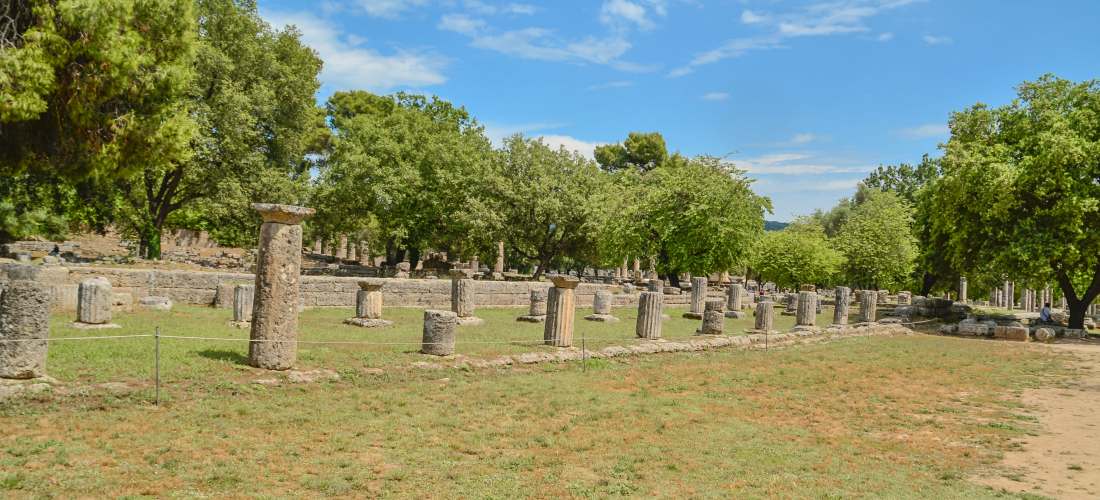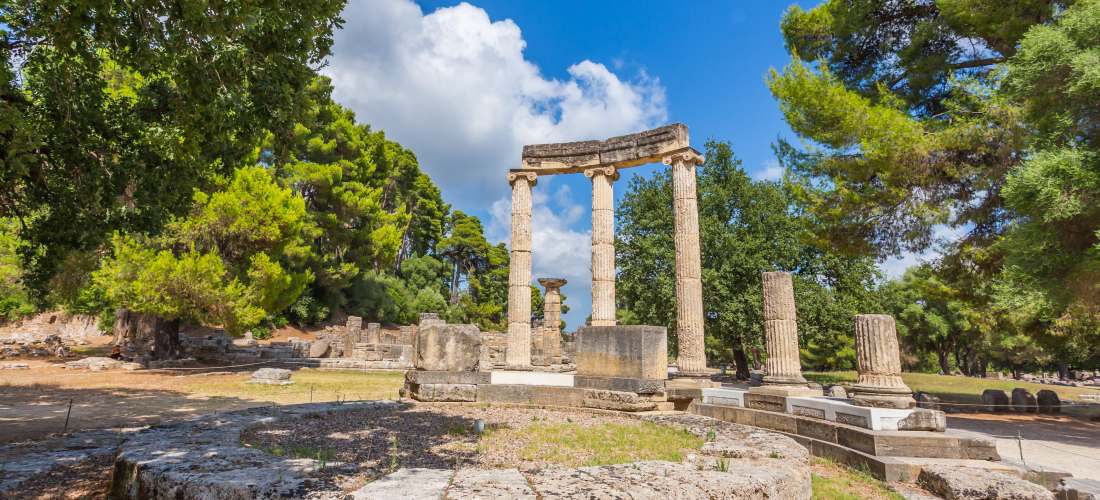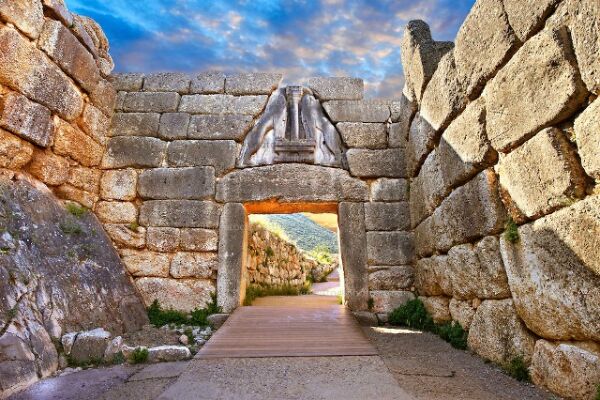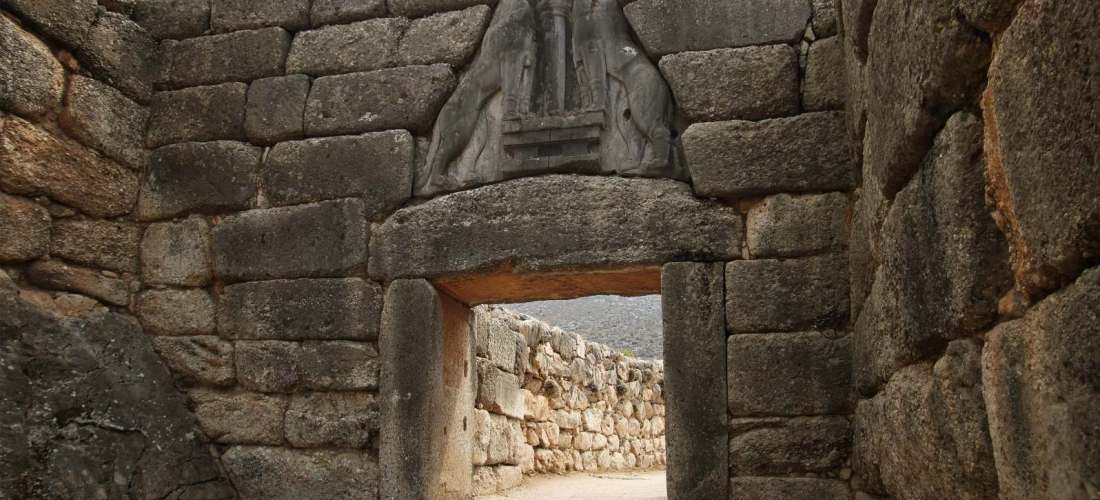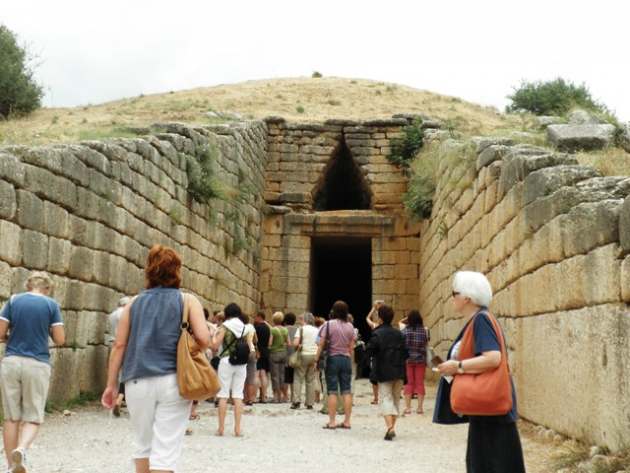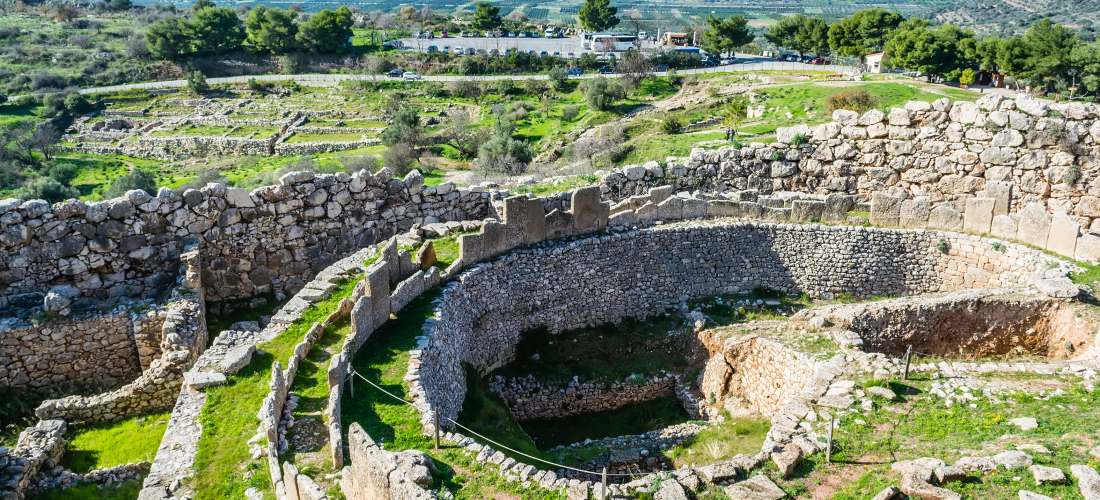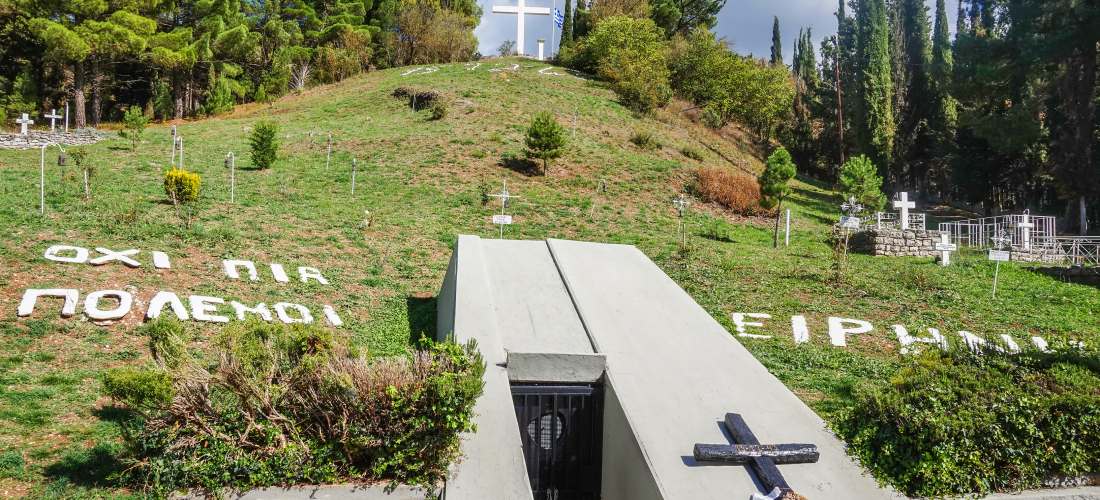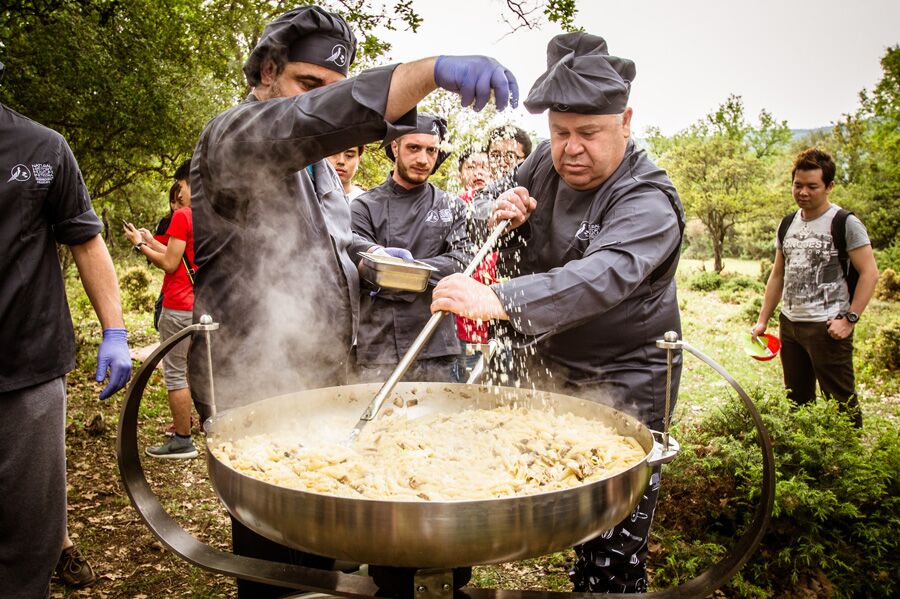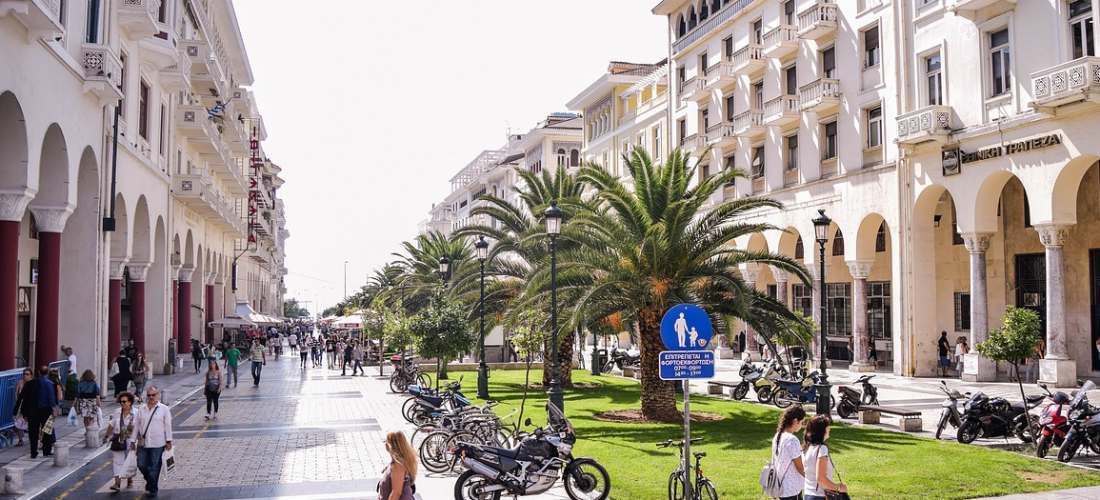It is amazing the way in which the Apostle Paul under the guiding inspiration of the Holy Spirit decided to visit the Greek area. Being with Timothy, Silas and the Evangelist Luke in Troas he saw in a vision a young Macedonian who asked him to go to Macedonia to save them. A vision appeared to Paul in the night: a man of Macedonia was standing and appealing to him, and saying, “Come over to Macedonia and help us.” When he had seen the vision, immediately we sought to go into Macedonia, concluding that God had called us to preach the gospel to them (Acts 16:9-10).
Evidently, Paul was fully aware of the importance of the Greek language as an international language at that time and therefore set as a high priority the preaching of the Gospel in the Greek language, considering that this will be an important bridge for the spread of the Christian faith in the West and will meet the needs of the Hellenistic Age and world.
Thus, according to the book Acts of the Apostles, the apostle Paul and his entourage took the ship from Troy for Samothrace and from there they went to the port of Neapolis (today’s Kavala) and then continued on foot to Philippi.
The arrival of Paul and his associates in Greece is directly connected with the establishment of the first apostolic church in Europe, i.e. the church of Philippi. The spread of Christianity in the spiritual center of the Greco-Roman world is Paul’s strong desire.
The first Christians of Macedonia are the inhabitants of Philippi who were baptized on the banks of the river Zygactis. A special presence among the women was Lydia, who is considered the first Christian woman in Europe.
A notable event in Philippi is the imprisonment of Paul and Silas when he healed the child who was possessed by a spirit of divination and after accusations of provoking abnormalities in the city and for having habits unusual for the Romans. The two men were caned and imprisoned but a massive earthquake spread panic in the city. The prison’s doors opened and the guard tried to commit suicide. The two Apostles prevented him from harming himself. He then believed in God, he and his family got baptized.
Paul will maintain close relations with the Philippians. He wrote them a letter when he was in prison in Ephesus from which I keep the phrase “because for me life is Christ and death is gain”.
Seven years after his first visit, he will return to Philippi and then visit the place three more times (on April of 57, in spring of 63 and winter of 64).
Apostle Paul in Thessalonica
After passing through Amphipolis and Apollonia, Paul arrived at Thessalonica, a city he attached great importance to because of its large population, among which there were numerous Jews, the most prosperous Jewish community away from Judea, but also because of its central position in Egnatia road (Via Egnatia) which connected Rome with the eastern possessions of the Roman empire.
Paul stayed in Thessalonika “for three sabbaths”, i.e. from 16 to 27 days, while the First Letter to the Thessalonians hints at a longer period, which many estimate at 2-3 months.
Paul, at the beginning of this First Letter (1, 3-8), speaks with great enthusiasm about the faith of the Thessalonians, he singles out the impetuosity, power and speed with which “the word of the Lord” was spread by the Christians of Thessalonika, and emphasizes the extent, which the new situation created in Thessalonika after his preaching.
Here, Paul wanted to introduce his listeners to Jesus Christ, who suffered and rose again for the salvation of man and to inform them that in the person of Christ the promises of the First Testament were fulfilled. For this reason, Paul chose as the subject of his speech, the chapter 53 of the prophet Isaiah (53, 3-8) about the passions of the Messiah. Another central theme was the expectation of the second coming of Christ, who will deliver the believers “from the wrath to come”, as it appears from 1 Thess. (1.10). Also with this sermon emphasis was placed on the moral perfection of man by deepening the study of the scriptures.
The great success of Paul’s work in Thessalonica enraged the Jews, who hired several men from the market “wicked,” who made a great noise with their voices against the apostles accusing them of disturbing the city.
After all these events, the young Christians took care to flee Paul with his associates to Berea (Veria) to continue his missionary work there.
Attributing great importance to the established church of Thessaloniki, Paul wrote two letters to the Thessalonians, while later he also sent Timothy to strengthen their faith.
Apostle Paul in Veria (Beroea)
They walked for a while on Via Egnatia heading west towards Veria. Veria (Beroea or Berea) was a very busy city with great population and had a flourishing synagogue. As soon as they got there, Paul and Silas visited the synagogue. It is also said that the Jews of Veria were more polite than those in Thessalonika and heard with great interest Paul preaching the Holy Gospel. Among the attendants were people from the upper classes of Veria, Hebrews and converts and a greatnumber of women. But soon, the news about Paul’s activities were spread in Thessalonika. Their enemies from Thessaloniki sent people to Veria to provoke turmoil. Immediately his companions took the Apostle away from Veria. Timothy and Silas remained in Veria. As a gift in return Veria gave to the Apostle of the Nations a new companion. He was Sopatros, son of Pyrrhus, who accompanied him for a long time after his return to Asia. The spot in Veria where it is said that Paul stood and preached, the so called “Apostle Paul’s Podium” is now an imposing monument. Since 1995, a series of religious, cultural and sports events have been established under the name “Pavlia” which end every year with a scientific conference.
The absence of any mention of places between Veria (Berea) and Athens provides presumptive evidence that Paul indeed travel by sea, rounding the promontory of Sounion, entered Athens by Piræus.
Paul arrived in Athens in the year 51. Athens was far from the typical bright city of classical times. The works of art were frequently pillaged, the Romans deserted the city of Pallas Athena and the descent of ideals started to become obvious.
That Paul spent some time waiting in Athens is confirmed by Thessalonians 3:1–6, which must have been written not long after this time. The philosophical scene was reminiscent of the classical period in Athens, when Socrates engaged in philosophical dialogue in the streets and agora of Athens, and the charge against Paul about proclaiming “foreign divinities” would remind the charge brought against Socrates of preaching “new divinities” (Greek: kaina daimonia).
While he was waiting for Silas and Timothy to come from Macedonia, he was walking around the city, discussing with the locals in the synagogue or the market and was upset by the numerous statuettes. His preaching on the death of Jesus on the cross and his resurrection impressed some epicurean and stoic philosophers who characterized him as “news monger”. He was never chased for his preaching while he was in Athens. On the contrary he was taken to High Court (Areopagus) in order to preach formally and in more details.
Regarding the spot from where Apostle Paul spoke to the Athenians, it is also said that he preached in front of the High Court’s Body as one of its members (Dionysius the Aeropagite) adopted the ideas of his preaching.
Areopagus was the name of the hill west of the Athenian Acropolis.
We do not know how Paul went to Corinth. It is for sure that he left Athens puzzled with how Athenians dealt with his preaching and with the situation in the Churches of Macedonia. While Paul was leaving Athens, Timothy was on his way to Thessaloniki.
In Corinth Paul developed friendship with Aquila and Priscilla who were also tend makers (as he also was) and already knew some things about Jesus. He stayed and worked with them and every Saturday he preached Jews and Greeks. Most of Jews were not convinced that Jesus was the Messiah and at some point Paul stayed with Titus Justus who was proselyte and lived close to the synagogue. Among the believers was Crispus, chief priest of the synagogue who was baptized together with all his family.
The Acts of the Apostles inform us that at some point Corinthian Jews conspired against Paul. They dragged him to court accusing him that he was illegally trying to convert people follow his preaching. Hebrews’ statement had no result as Paul’s problem had nothing to do with the hostility of the pagans but of his fellow citizens.
Few weeks later he decided to leave Corinth. He had to quickly go to Ephesus. He said goodbye to his friends and he left Corinth accompanied by Silas, Timothy, Aquila and Priscilla.
The Apostle Paul is the patron saint of Corinth and a splendid temple has been built in his honor.
If the Apostle Paul took the ship to Athens pursued by his persecutors, we, being in Macedonia, find it an opportunity to slowly descend towards Athens, coming into contact with the Macedonia of Philip II and Alexander the Great, visiting the great archaeological sites of Vergina and Dion, passing by the divine Mount Olympus, the valley of Tempe, and reaching Meteora with its spectacular rocks and Christian monasteries on their peaks, a geological wonder of nature in the plain of Thessaly.
From here we will continue to descend towards southern Greece following the path of the descent of the Dorians. An opportunity to get to know classical Greece and the Greek culture, which, together with Christianity, formed the basis of the evolution of the human spirit.
We will visit the archaeological sites and the Museums of Delphi, Ancient Olympia, Mycenae, Ancient Epidaurus, Ancient Corinth, the Corinth Canal, Athens, the Acropolis and its modern museum, as well as a visit to Cape Sounio .
These destinations, along with those that we will visit during the cruise, are considered among the most competitive destinations worldwide.
In the meantime, we will pass through a truly amazing natural environment, such as the Helmos-Vouraikos national park, which we will cross with the Cog railway, sources of rivers, the Arcadian nature, etc. At the Acropolis we will have the opportunity to see from nearby the rock of Pnyka and the point from where Paul addressed the Athenians.
After we have made a full acquaintance with Christian and classical Greece, its irresistible man-made and natural environment, we will continue our tour of the Aegean Sea with a beautiful five-night cruise. We will have the opportunity to visit the cosmopolitan islands of Mykonos and Santorini in the middle of the Aegean, the beautiful island of Rhodes, Mycenaean Crete, while we will complete our religious journey with two excellent visits to Ephesus, an important center of the Hellenistic period in Asia Minor, where Paul stayed for a long time either preaching or in prison.
In Ephesus Paul faced some very serious dangers as witnessed in 1 Cor. 15:32 or 2 Cor. 1:8-10. It was here that all or some of the so-called “Captivity Epistles” (to Philippians, Colossians, Philemon, Ephesians) were written.
Finally, with great respect we will visit the island of Patmos and the monastery where John wrote the eschatological book of the Apocalypse.




